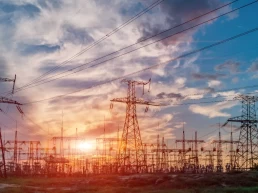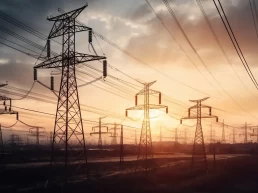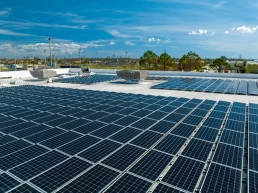Grids
Assystem Stup supports its clients in the modernisation, adaptation, and compliance of electrical networks all over the world.
Assystem Stup supports its clients in the modernisation, adaptation, and compliance of electrical networks all over the world.
Context and challenges
The transformations in electricity production methods generated by the energy transition and the development of a decarbonised energy around the world have a direct impact on the construction and operation of grids. The electricity demand is increasing to cope with demographic, industrial and economic growth of countries. This trend, which will last for a long time, has had a significant impact on the management of local power systems. And beyond the level of production necessary to meet this demand, the transformations of the ways to produce zero-carbon energy are disrupting the existing energy mix and has direct consequences on grids.
Optimising networks to the growing demand for electricity
A growing consumption of electricity due to the increasing urbanisation of the world population or the industrialisation of regions requires adaptations to the grids, which transport this electricity from production plants to delivery stations. Modernisation, resilience to energy demand peak and supply continuity are the main challenges for tomorrow’s electricity networks.
Integrate zero-carbon energy into the grids
Continue the development of nuclear and integrate renewable energies are the key of a decarbonised energy mix. But their integration into the grids is not without effect and must be managed to avoid destabilisation of electrical networks (variability of renewables or the location of plants are major aspects in the equation).
Adapting to the grid regulatory constraints of each country
The electrical network regulations are different according to the continents and can even vary significantly between neighbouring countries. Respecting local norms and standards to build or modernise the grids is thus also a major challenge for electrical operators.
what is under is mobile only !!!!!!!!
Optimizing networks to the growing demand for electricity
A growing consumption of electricity due to the increasing urbanisation of the world population or the industrialisation of regions requires adaptations to the grids, which transport this electricity from production plants to delivery stations. Modernisation, resilience to energy demand peak and supply continuity are the main challenges for tomorrow’s electricity networks.
Integrate zero-carbon energy into the grids
Continue the development of nuclear and integrate renewable energies are the key of a decarbonised energy mix. But their integration into the grids is not without effect and must be managed to avoid destabilisation of electrical networks (variability of renewables or the location of plants are major aspects in the equation).
Adapting to the grid regulatory constraints of each country
The electrical network regulations are different according to the continents and can even vary significantly between neighbouring countries. Respecting local norms and standards to build or modernise the grids is thus also a major challenge for electrical operators.
Our expertise in Grids
Assystem Stup’s expertise for more than 50 years in nuclear and power sectors allows us to master the practices and standards to be integrated for the management of an electrical network.
Our engineers have strong competences in transmission and distribution, power system analysis and simulation, grid impact studies, engineering studies, and requirements management, and are used to deal with projects from beginning to end:
• Consultancy & Project Management
• Siting, permitting & environment
• Feasibility, conceptual to tender design
• Detailed design and specification of new installations
• Standards assessment and validation
Assystem Stup’s expertises also lies in its capability to assist operators in the globality of their project: our teams will be able to contribute to the development of new nuclear power plants, to the implementation of renewable projects and to guarantee their optimal integration to the grids in terms of transport and distribution.
Our main services in Grids
Geological & geotechnical studies, environmental impact assessment
Impact analysis, design standards & regulations
Digital twin, modelling & simulation
Supply chain management & compliance
Our projects in Grids
A project? A question?
Our teams are at your disposal for any questions or additional information.


